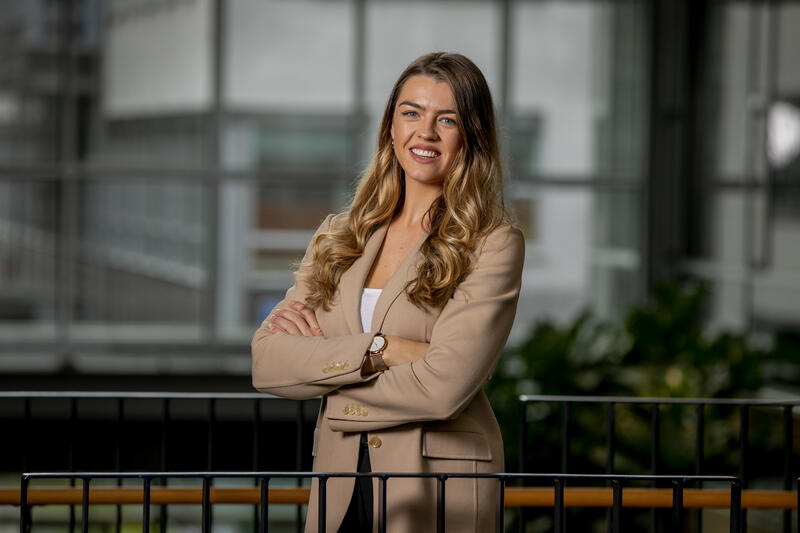Elevating E-commerce Sustainability: ASTER Insights from Amazon's Collaborative Session
In a recent Lunch & Learn with Amazon, we explored key insights from Oliver Wyman's "Delivery Decarbonization Pathway" report. The panel emphasized the importance of sharing knowledge with decision-makers and proactive collaboration in e-commerce policy development. Despite Sweden's leadership in e-commerce sustainability, the consensus called for increased collaboration to address complex sustainability challenges. The need for clear communication and EU-level decisions to accelerate the green transition was highlighted.
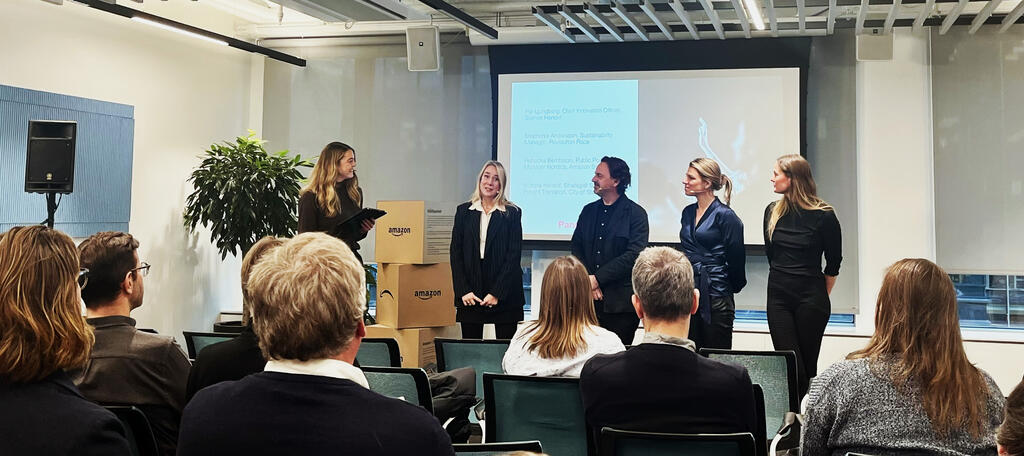
Fom the left: Josephine Darlington, ASTER, Stephanie Andersson, Revolution Race, Per Ljungberg, Svensk Handel, Rebecka Berntsson, Amazon and Victoria Herslöf, Stockholm Stad
In a recent Lunch & Learn with Amazon, we explored key insights from Oliver Wyman's "Delivery Decarbonization Pathway" report. The panel emphasized the importance of sharing knowledge with decision-makers and proactive collaboration in e-commerce policy development. Despite Sweden's leadership in e-commerce sustainability, the consensus called for increased collaboration to address complex sustainability challenges. The need for clear communication and EU-level decisions to accelerate the green transition was highlighted.
The session built on the latest report from Oliver Wyman “Delivery Decorbonization Pathway”. We started off with a great presentation on the report from Joris D’incá. In the pictures below, we have chosen a couple of interesting points in the report - In addition to a couple of statements made:
“Delivery speed by itself does not drive emissions. When ranking delivery options by lead time emissions form a U-curve — the fastest and slowest options have the highest emissions”
“The most common ship-from-store delivery setup generates three times the emissions of national standard delivery. However, there are strong variations depending on the store organization. Emissions can be 150% less or 15% more than the reference store case. Compared with national standard delivery, they can range from 50% more to four or five times as much.”
“Even though Sweden has the highest return rate of the six countries (25%), the resulting increase in emissions is just 5%, because of the low residual mix factor, which limits the additional emissions coming from buildings used twice in the event of a return.”
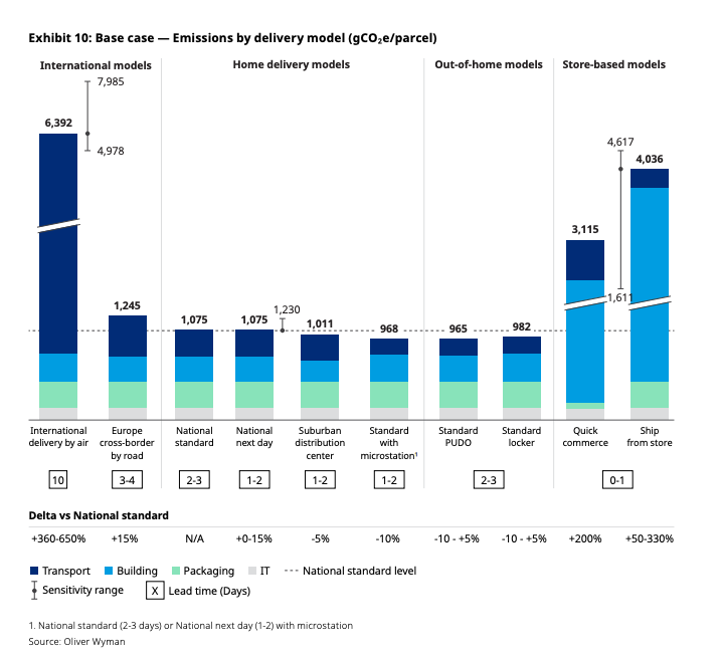
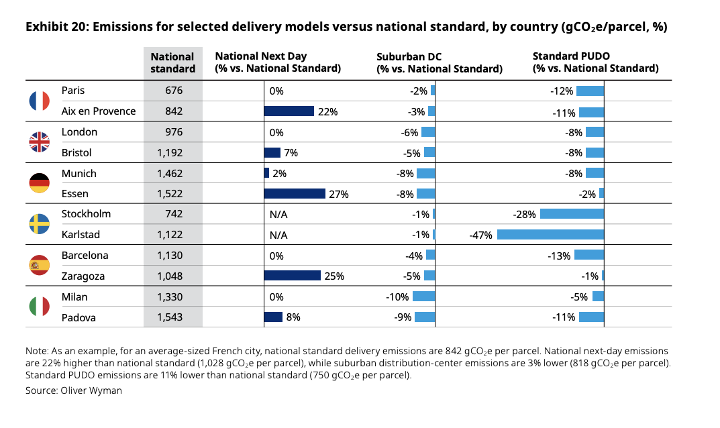
The presentation was followed by a panel discussion with Stephanie Andersson, Revolution Race, Rebecka Berntsson, Amazon Sweden, Per Ljungberg, Svensk Handel, and Victoria Herslöf, City of Stockholm. A couple of points given here were:
- It is important to lift facts that we, working in the e-commerce chain, may see as obvious. Decision makers seldomly have time and effort to have a full view of all the topics they depicit. Actors in the e-commerce chain have a responsibility to lift knowledge and insights to decision makers.
- We might not always agree on how regulation is framed. Therefore it is important for actors in the e-commerce chain to be proactively involved in development and assessment of regulation and/or policy. Collaboration is key.
- A lot is happening around Europe in regard to regulation of cityspace, where livability is in focus. Walking, cycling, public transport, and goods deliveries are priortised over the privately owned car. However, as data on use of the transport system is scarce there is little data to make decisions on or compare to. A growing problem as the curb becomes increasingly used by new actors.
- Just as the report displays, our panel members experience that Sweden is ahead on several areas in regard to sustainability in e-commerce. There is additionally an interest to tackle difficult sustainability issues mutually, but that collaboration needs to increase.
- To speed up the green transition clear communication is needed, in addition to that decisions need to be made at an EU-level. Retailers who work internationally cannot work with separate regulation in different EU-countries.
In summary, the collaborative session with Amazon explored key insights and industry leaders highlighted the importance of knowledge sharing and proactive collaboration in shaping e-commerce policies. Despite Sweden's sustainability leadership, increased collaboration is needed to address complex challenges. The call for clear communication and EU-level decisions emerged as crucial for a greener transition. A heartfelt thanks to our speakers and participants for a valuable discussion!
Do you want to know more?
